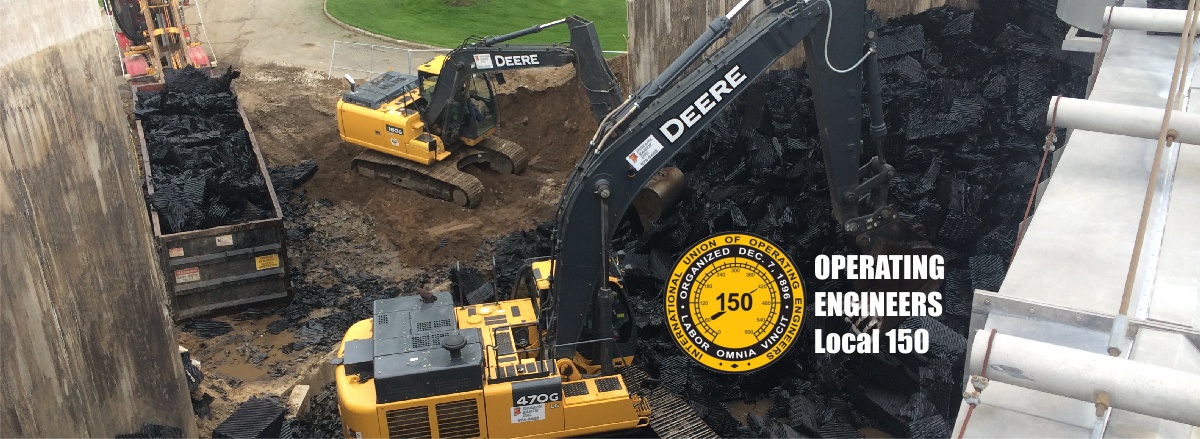What being an Operating Engineer is about
Operating Engineers operate and maintain various types of heavy machinery such as Cranes, Bulldozers, Scrapers, Loaders, Motor Graders, Tractor Loader Backhoes, Excavators, Forklifts, Rollers, Pavers, and more. Some of the machines require the operators to turn valves, adjust hand wheels, controls levers, and press pedals to operate and control the machine. Other machines such as cranes require the constant use of both feet and both hands. Operating Engineers work on projects ranging from bridges and highway construction to large commercial, industrial, and residential buildings. Operating Engineers should enjoy working with machines and heavy equipment, be mechanically inclined, be able to withstand the jolting and vibration of machines, and be able to do routine and repetitive work. Almost all of the work is performed outdoors, so you can expect to be hot in the summer, cold in the winter, and muddy, dirty, and dusty in between. The job requires good eyesight, depth perception, and muscular coordination.
General Qualifications
- Age 18 or older
- Minimum Education: High School Diploma or GED
- Valid Driver’s License
- Must be able to pass drug screen
- Good physical condition
Operating Engineer Apprenticeship Program
- Complete a personal interview and application
- Transcript of High School Records or GED Test Scores
- Length of Indentureship (Apprenticeship): 6,000 hours
- Length of classroom instruction: 144 hours/year
- Length of probationary period: 1,000 hours
How to Apply
Request an application online at aspilocal150.org or in person at:



